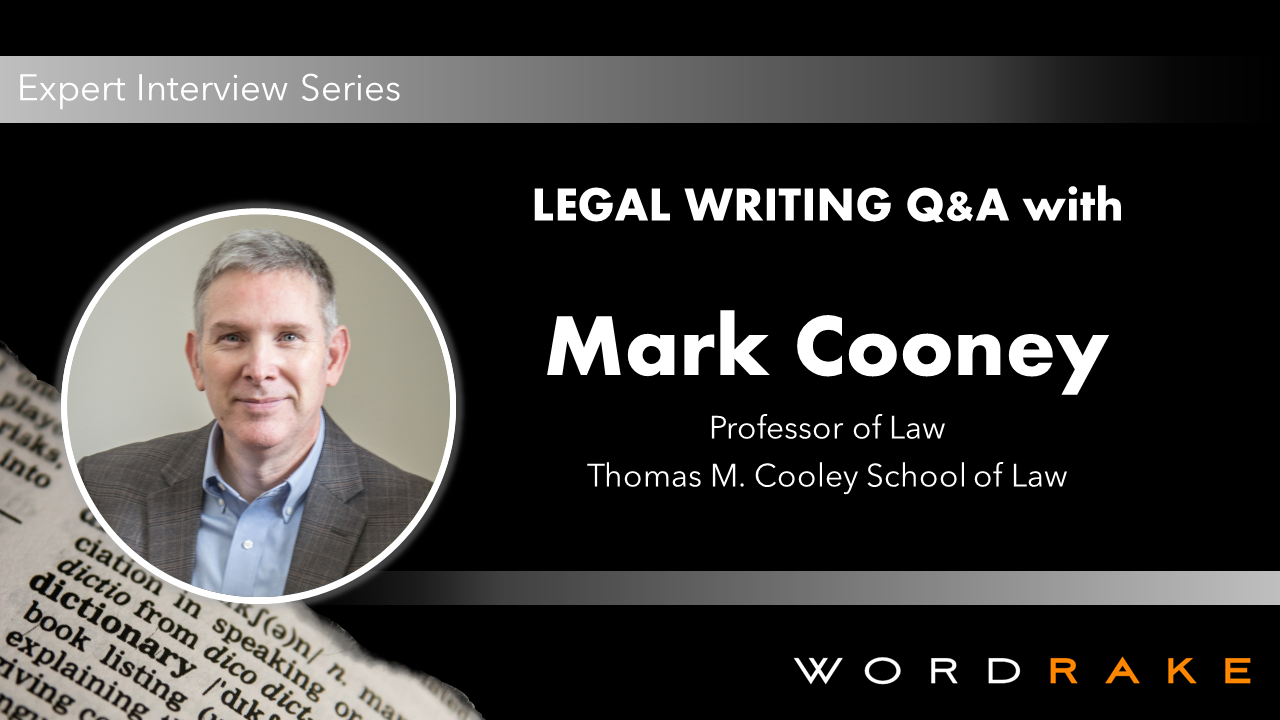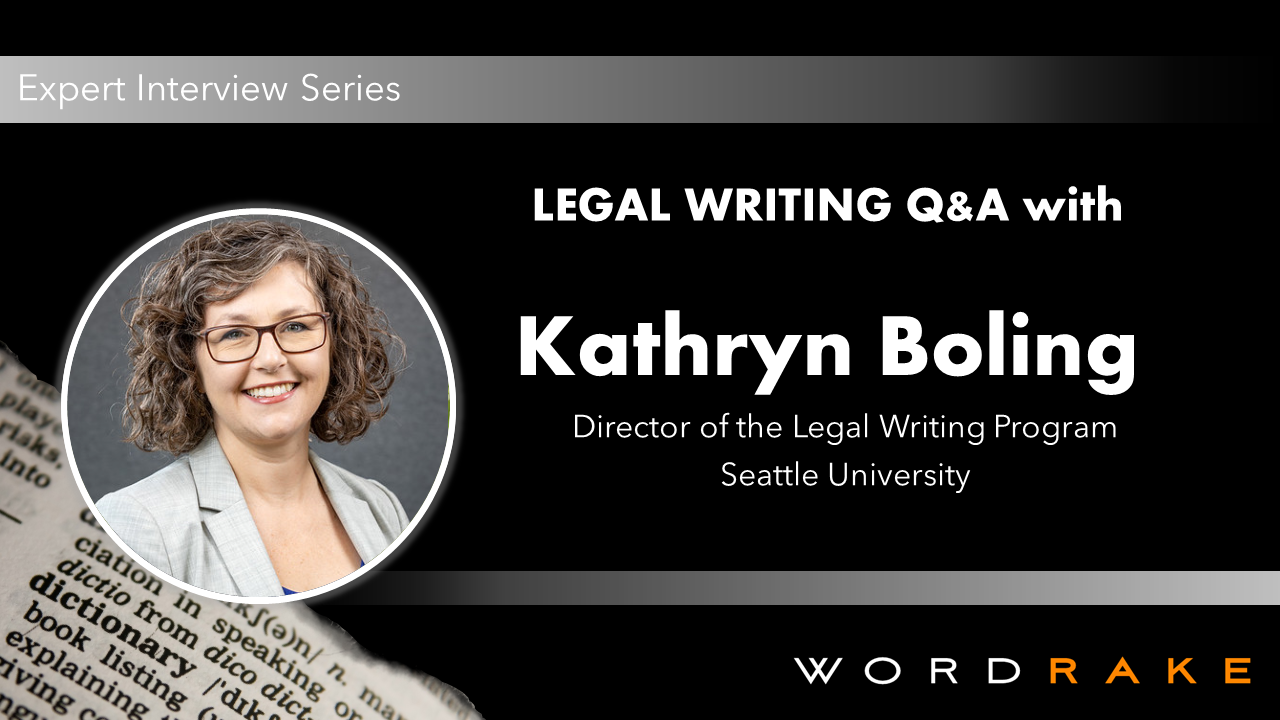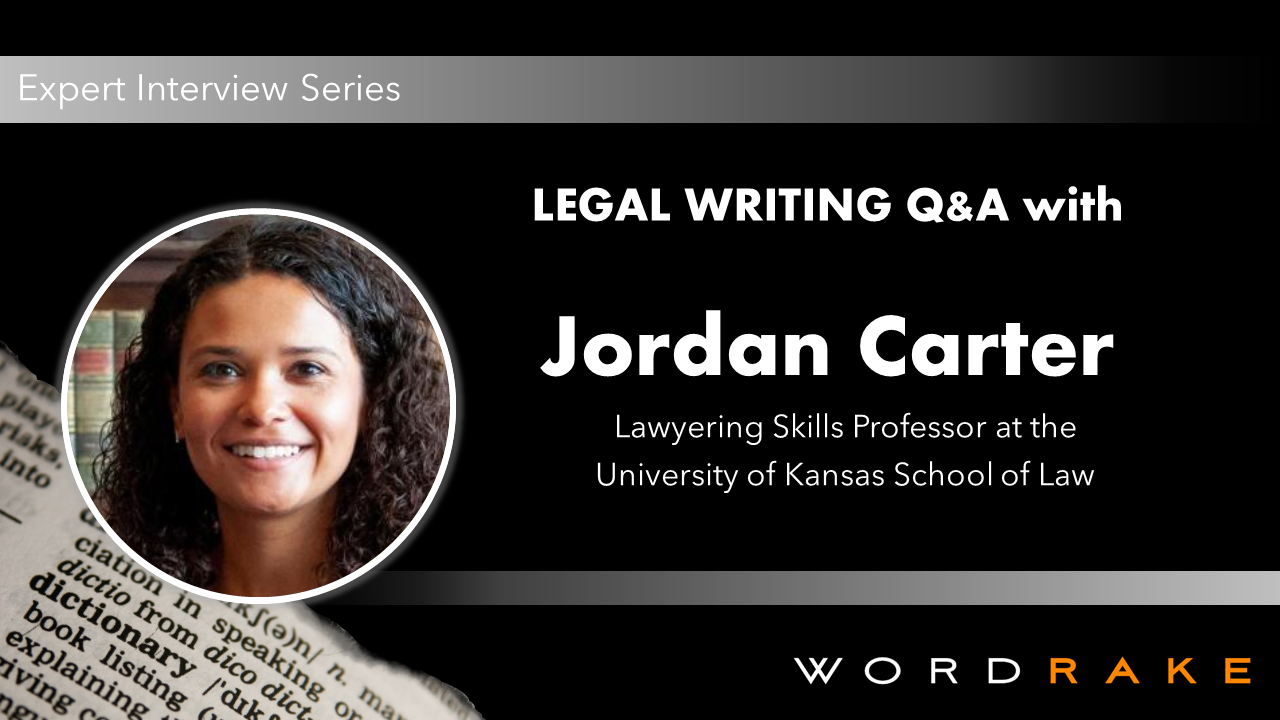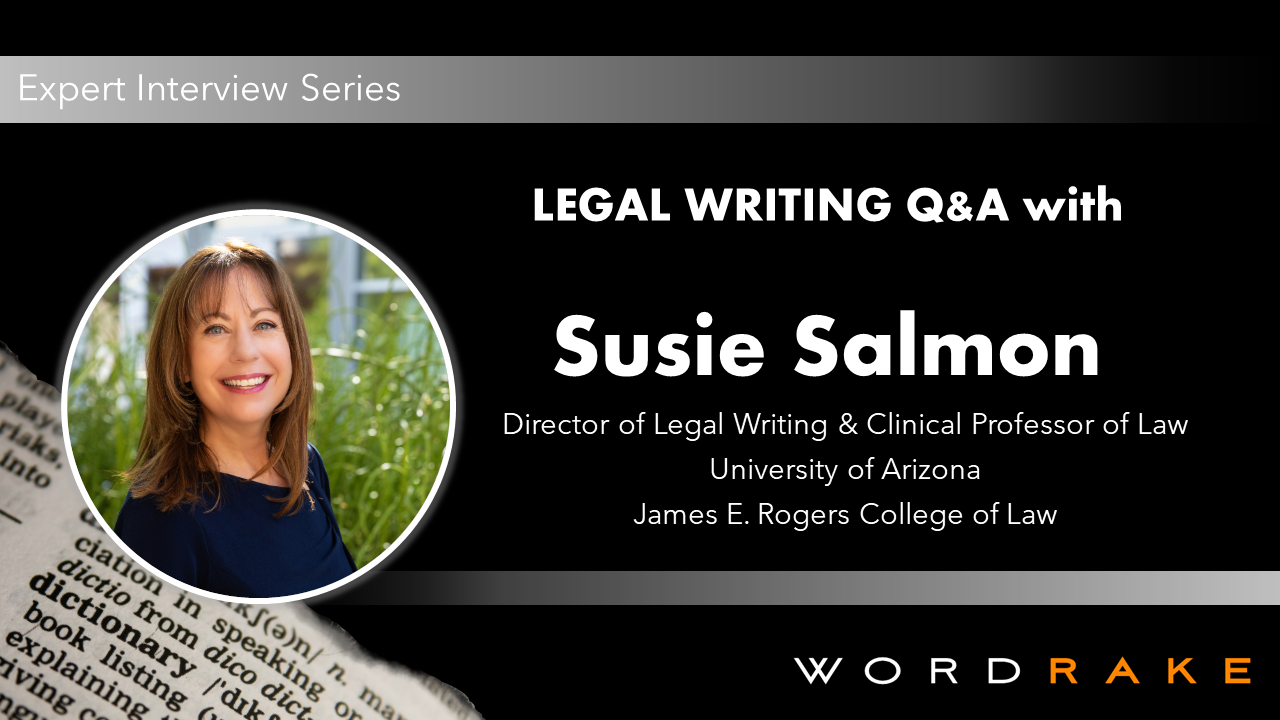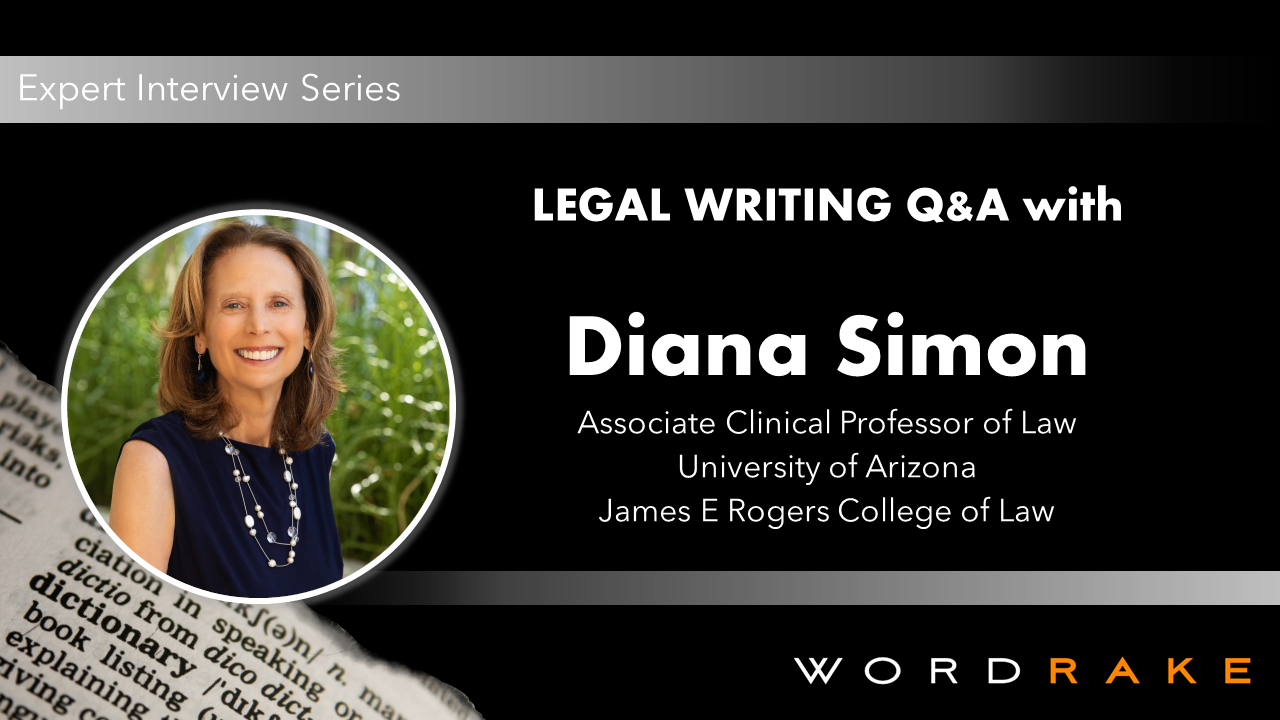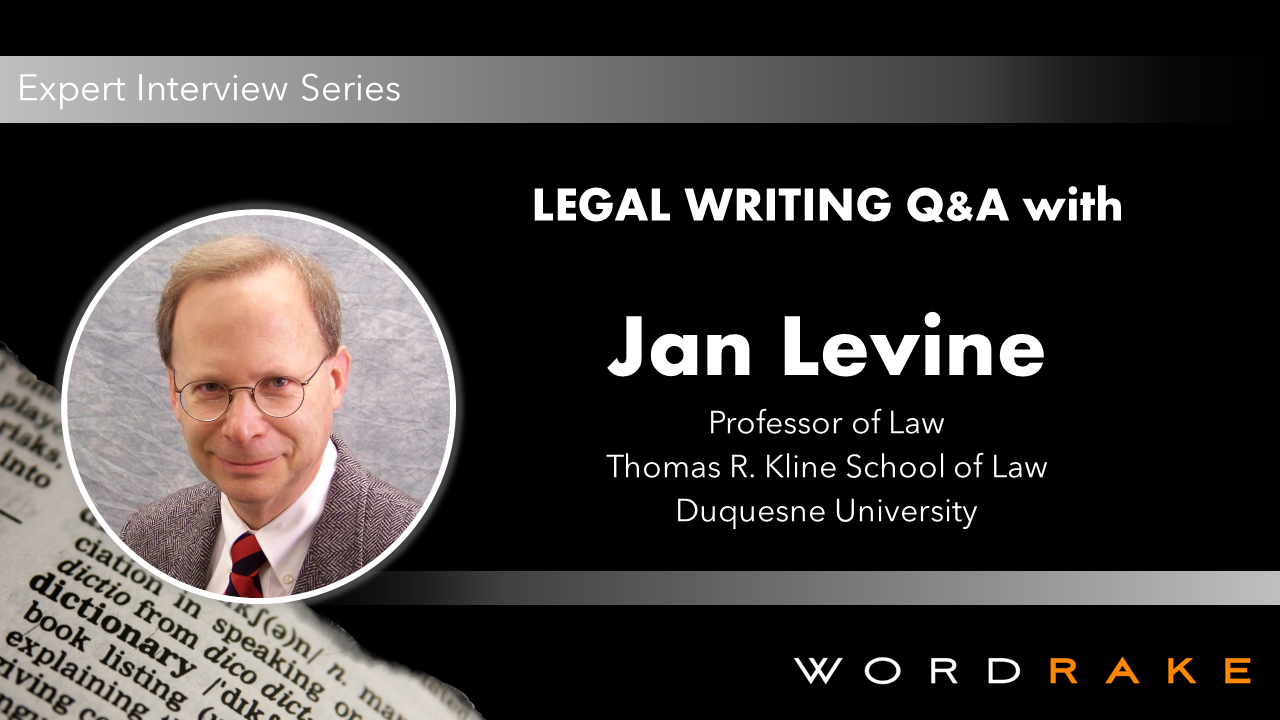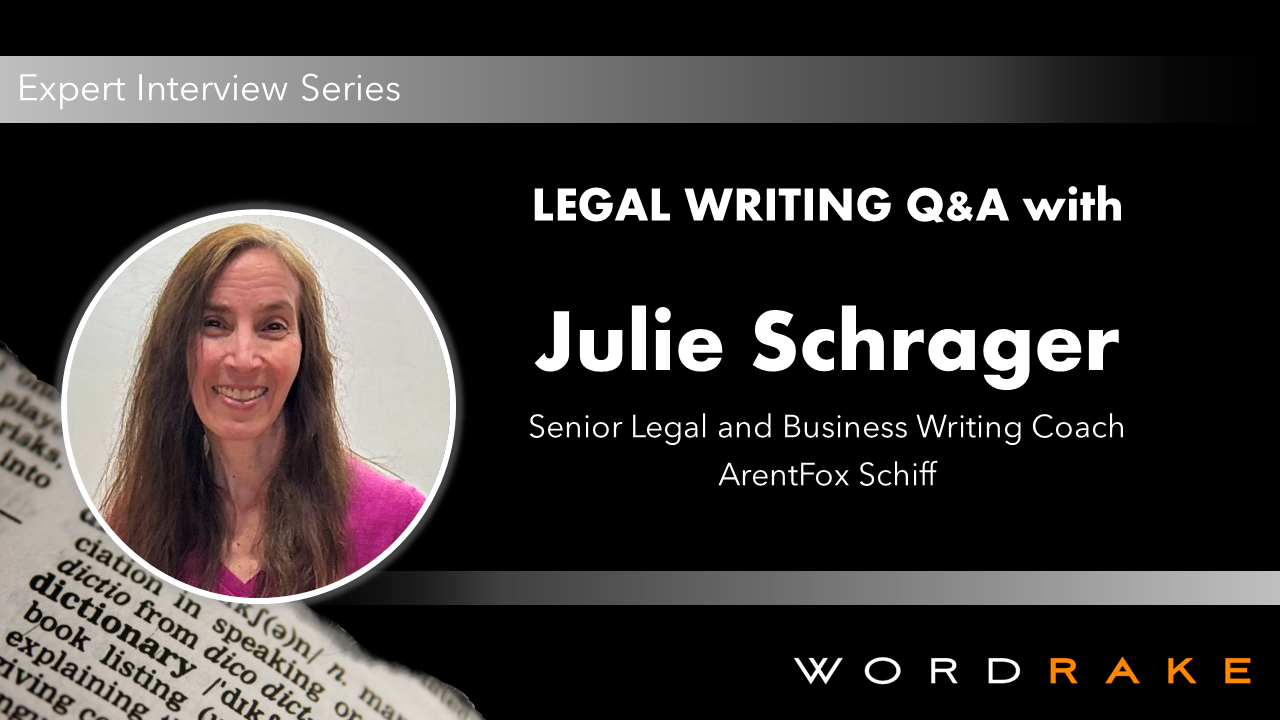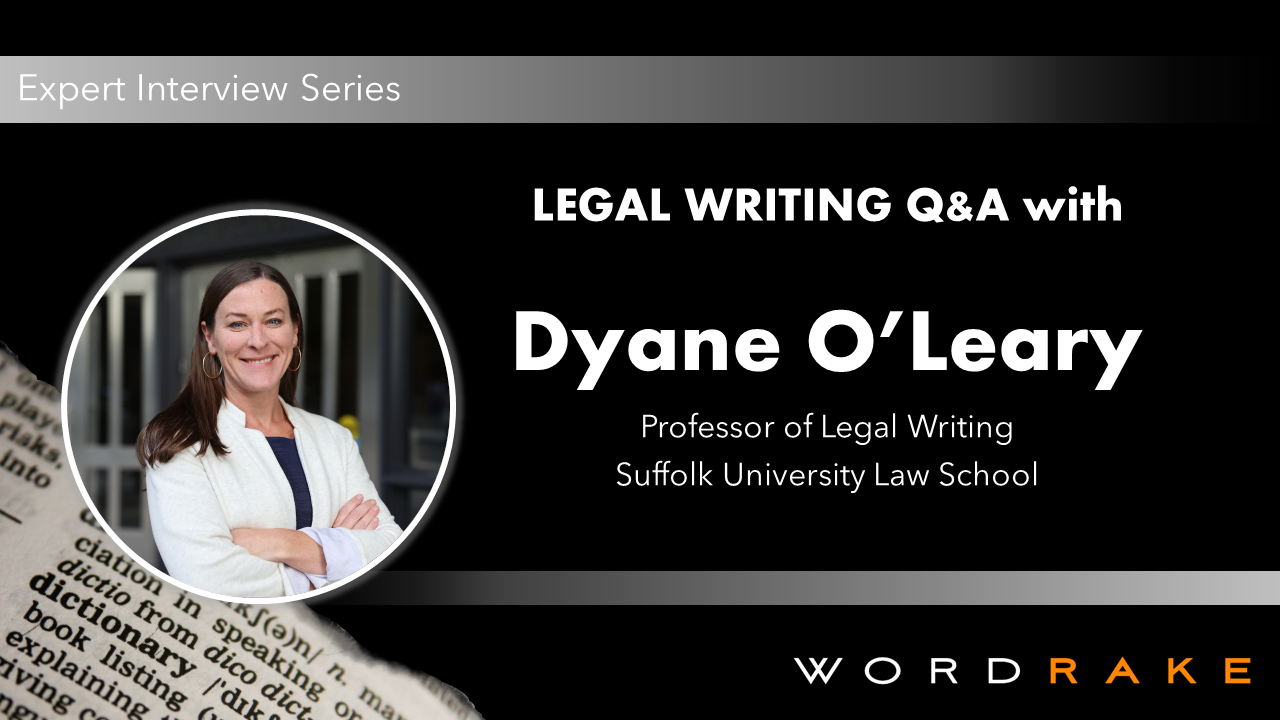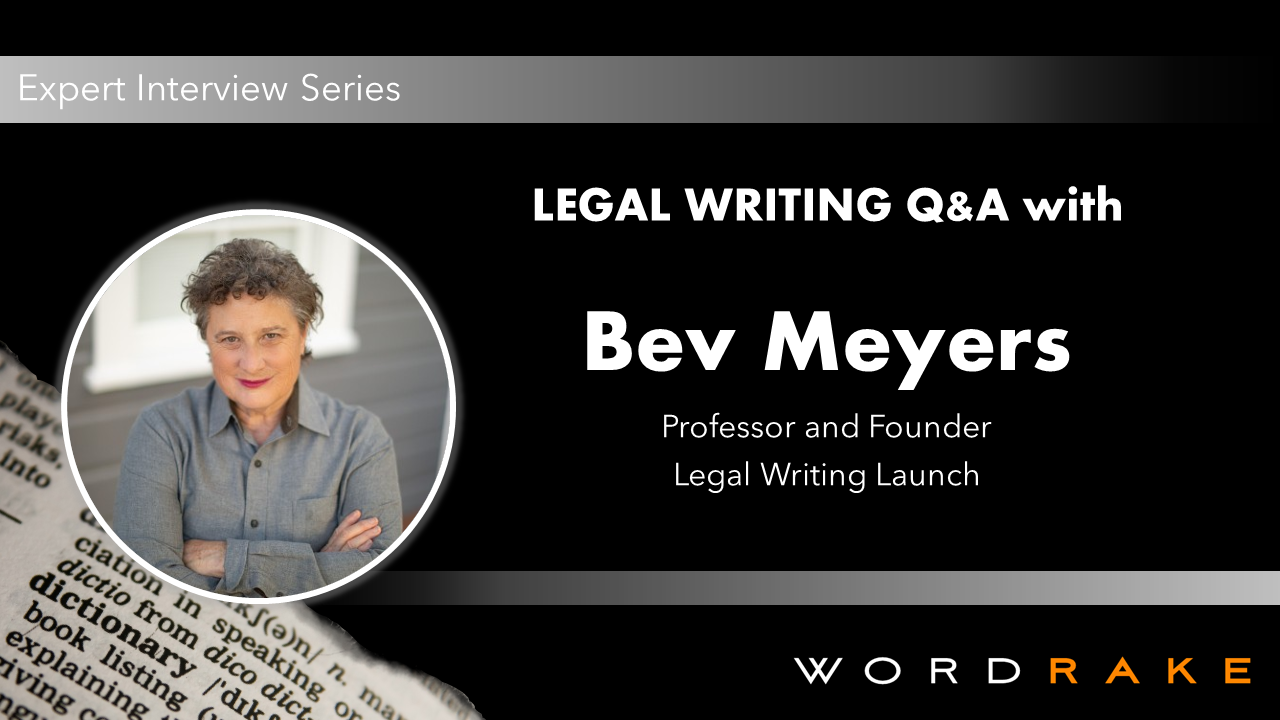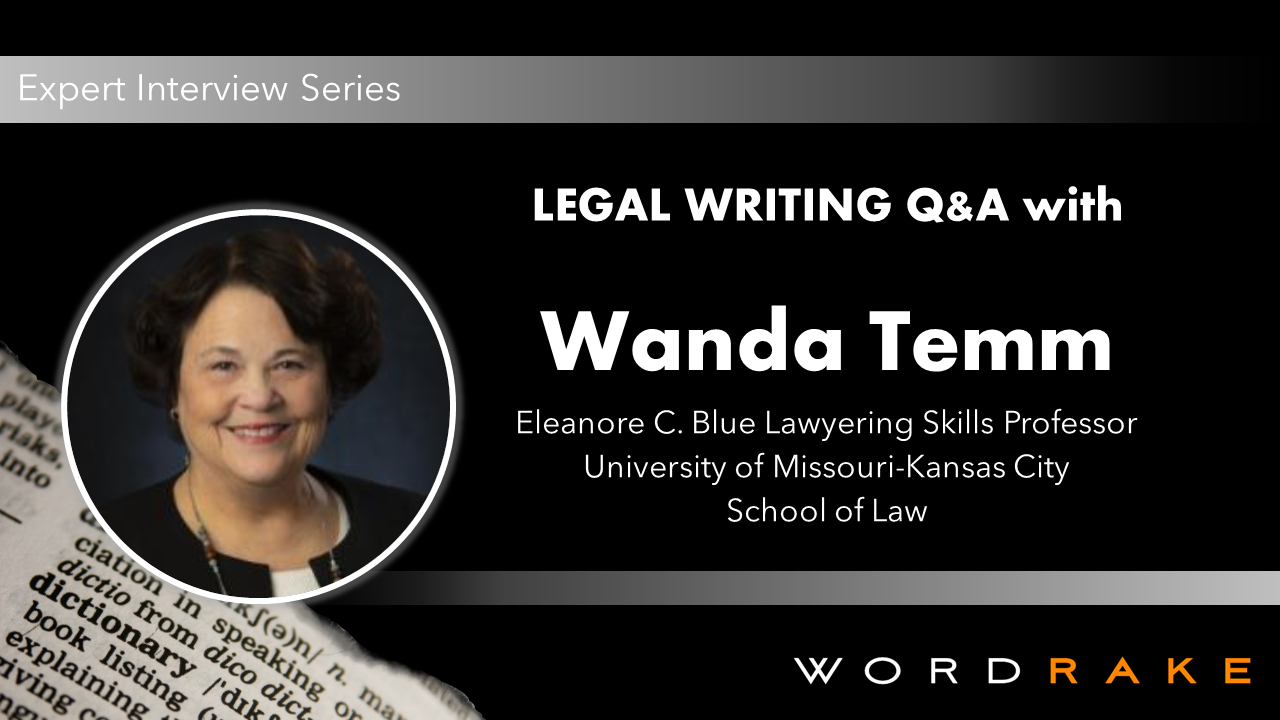What's scarier to an experienced lawyer, a wall of indecipherable legal jargon and Latin-derived gobbledygook, or a brief written in clear, plain language? While the average layperson may be more afraid of the unreadable block of text, Professor Mark Cooney has learned that a succinct, clearly worded document is much more threatening.
Continue readingLegal writing is its own discipline, with its own conventions. While the process of learning this complex skill and weaving it into part of your professional identity is a daunting one, Kathryn Boling, Director of the Legal Writing Program and Seattle University thinks it's rewarding experience. She shared her perspective with us.
Continue readingSometimes professors give advice that feels theoretical rather than practical. They sometimes have romantic ideas about their craft and give poetic rather than concrete feedback. Jordan Carter is not that professor. Jordan has practiced law, clerked for a judge, and now teachers young lawyers how to write, and she shares her experience and realistic perspective on the process of learning to write legal documents.
Continue readingWhat is your role and how did you get to where you are today?
I’m currently the Director of Legal Writing and Clinical Professor of Law at the University of Arizona, James E. Rogers College of Law in Tucson, Arizona. Before I became Director of the program in 2017, I served as Assistant Director for seven years. For the last two years, I have served as the President of the Legal Writing Institute, the largest organization of legal-writing academics in the world, with over 1000 members.
Continue readingWhy teach legal writing? How is it different from every other kind of writing you do? Professor Diana Simon has been a litigator and a legal writing professor, and she knows from both sides how important and specialized good legal writing is. She took the time to talk to us about how to hone your legal writing craft.
What is your role and how did you get to where you are today?
I am currently an associate clinical professor of law, but my journey to get here involved some detours. Growing up with a father who was a criminal defense lawyer and a mother who taught English and journalism, it seemed inevitable that I would eventually tread their paths. I practiced law for 24 years and then began teaching after I retired. After a lengthy stint as an adjunct, five years ago I transitioned to being a full-time professor.
Continue readingHow do you build a curriculum for teaching the next generation of legal professionals to write? Professor Jan Levine has spent his career wrestling with this exact question. Over the last few decades he has refined his methods to distill the most effective strategies and share them with students and educators alike. Here's what he's discovered about how new legal writers learn to write effectively.
Continue readingEven experienced attorneys and paralegals sometimes need writing help, and if they're lucky, they've got a writing coach like Julie Schrager on staff at their firm to give them the tools they need to succeed. Julie helps legal writers at all levels hone their craft, and she took the time to share some of her tips and experience with us.
What is your role, and how are you involved in legal writing?
I’m ArentFox Schiff’s in-house legal and business writing coach. In my job, I work closely with my fellow attorneys—from summer associates to senior partners—to improve our writing skills. I read and comment on all types of writing, from emails to memos, briefs, and client alerts, and share my thoughts about analysis, structure, content, and style. I also host presentations about a range of writing topics, from drafting effective emails to writing persuasive briefs. One of my favorite parts of the job is helping our newest attorneys adjust to the writing practices of a professional environment.
Continue readingLegal writing is all about precision and balance. Creating legal documents calls for precision and attention to detail, while requiring creative thinking and reasoning at each step. This can be hard for law students to manage, which is why Professors like Dyane O’Leary dedicate their lives to molding new legal minds. For her, the delicate dance between structure and innovation is a joy to lead.
Continue readingWhat do you do when you’ve retired from the state attorney general’s office and you’re looking to do good in the world? For Professor Bev Meyers, the answer was to solve a problem she’d seen in practice—how to make legal writing better. Professor Meyers created the Legal Writing Launch program to teach lawyers to write well in every circumstance, and she shared her process with us.
Continue readingSome people are born to teach, and Professor Wanda Temm is one of them. Ever since she was a child, Professor Temm has been passionate about learning and teaching. Legal writing is a complex topic, but Professor Temm’s confidence that her students can learn to write well makes her the perfect person to ask how lawyers can learn to write.
Continue reading
